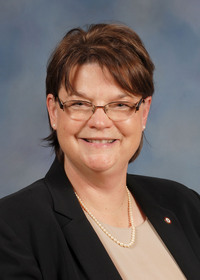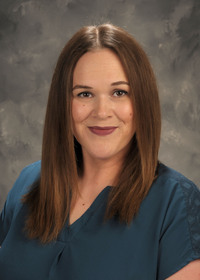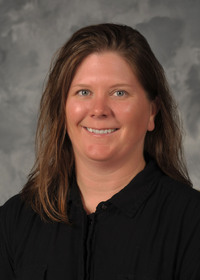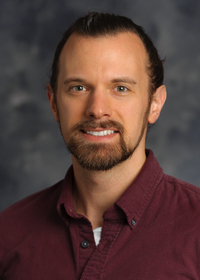Information Possibly Outdated
The information presented on this page was originally released on January 28, 2002. It may not be outdated, but please search our site for more current information. If you plan to quote or reference this information in a publication, please check with the Extension specialist or author before proceeding.
Eating-disorder victims need professional help
By Ashley Crawford
MISSISSIPPI STATE -- Understanding the causes of eating disorders may be the first step toward recognizing and helping the potential victims of this self-inflicted abuse.
People with eating disorders demonstrate compulsive behaviors regarding their food intake, weight and shape in hopes of gaining rewards. Two common types of eating disorders include anorexia nervosa and bulimia nervosa.
Rebecca Kelly, human nutrition specialist and registered dietitian with Mississippi State University's Extension Service, said an estimated 5 million people in the United States, primarily young females, suffer from anorexia and bulimia. However, many more suffer from eating disorders that do not meet specific criteria.
"Several factors contribute to the development of eating disorders," Kelly said. "Although there may be physiological causes, eating disorders also may develop because of vulnerable personalities, family issues and societal pressures."
Refusal to maintain a healthy body weight and a distorted perception of body shape and weight characterize anorexia.
"People with anorexia are often perfectionists, highly motivated and overly compliant," Kelly said. "They tend to come from a very strict upbringing with overprotective parents."
In contrast, bulimia involves binge eating followed by self-induced vomiting. A person with bulimia suffers from low self-esteem and often has experienced chaos in their upbringing, such as a parent with a chemical dependency.
"Many people purge to release emotions and to have feelings of being in control. The feeling is similar to how some people feel after a good cry," Kelly said.
Eating disorders also develop during puberty, but other major life changes such as a birth or a death may trigger their onset. Kelly said the compulsive activities associated with eating disorders enable the people with these disorders to gain some control in their lives. Rejecting food and purging are ways they gain control.
Binge-eating is another disorder in which individuals may actually be overweight and consume large amounts of food rapidly at least twice a week. People suffering from binge-eating disorder may experience depression and feelings of disgust about themselves.
Recognizing the many conditions manifested into an eating disorder may help people become aware of those silently suffering from one before it is too late.
"The specific detrimental health effects are unique to each type of eating disorder," Kelly said. "However, all seriously affect every major organ and may lead to death."
The probability of recovery without treatment is small, Kelly said. With treatment, about 60 percent recover while those who do not seek treatment often die from health complications.
"Treatment is best when it is a team effort," Kelly said. "A patient needs to have at least a therapist, physician and a dietician share information to determine the best treatment."
Since problems at home may contribute to eating disorders, treating the family is also part of the recovery, Kelly said. An eating disorder is not the person's problem in isolation.
"Families and loved ones need to be patient and supportive and never blame a person for the eating disorder," Kelly said.
Treating an eating disorder involves not only improving eating habits but also helping a person deal with inner conflicts. Therefore, families should de-emphasize weight during treatment. Rewards prove to be more beneficial when given for food intake goals rather than weight goals.
"An eating disorder is a terrible way to suffer, and the road to recovery is not easy," Kelly said. "Every life has value. Therefore, a person with an eating disorder should be encouraged to seek medical help to have a chance at life."
For more information, contact: Dr. Rebecca Kelly, (662) 325-1801






